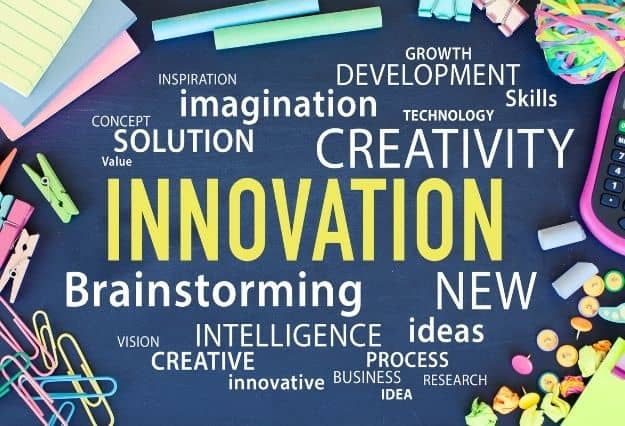Experimentation in Innovation
Experimentation is crucial in the innovation process. It helps in realizing potential faults early, reinforcing new knowledge, reducing costs or preventing fatal errors later.
Experimentation is vital for innovation. The systematic testing of ideas enables a company to create and refine its products. An idea is converted to a product through the process of experimentation. In the past, it was expensive to conduct experiments iteratively. But new technologies like computer simulation and rapid prototyping allow experiments to be carried out faster and at a much lesser cost.
1. As Developers Conceive Diverse Ideas
rapid experimentation can provide the rapid feedback necessary to shape those ideas by reinforcing, modifying, or complementing existing new knowledge. To test a new design for safety, BMW had to build expensive physical prototypes.
Data from crash tests arrived late and their findings could not be incorporated in the early stages of product development, and designs had to be reworked at a later stage to incorporate the results of the crash test. But now these tests are conducted virtually on powerful computers quickly and cheaply. It is possible to try many combinations of configurations and see which one is best.
Designers can incorporate the feedback from experiments in their later versions of designs and can commit to a design early. But to conduct rapid experimentation, there has to be changed in process, organization, and attitude.
At BMW, engineers did not want to release less-than-perfect data. They wanted to monitor output from other groups before submitting their own because the group that submitted its data first would quite likely have to make the most changes because it would have got the least feedback from other areas. But now engineers have to release rough data so that experiments can be conducted early on them and refined.
2. Experimenting With Many Diverse Ideas
It is crucial to innovation. When a new idea fails in an experiment, the failure exposes important gaps in knowledge. Such experiments are particularly desirable when they are performed early on so that unfavorable options can be eliminated quickly and people can refocus their efforts on more promising alternatives.
IDEO understands that more radical experiments frequently lead to more spectacular failures. People who fail in experiments can be viewed as incompetent and this may discourage people from experimenting.
A company will have to overcome ingrained attitudes to remove the stigma of failure. But it is important that people do not fear failure if a culture of rapid experimentation can be built. As soon people get ideas, they should be rushing to conduct experiments to test its feasibility rather than pondering over it.
3. When Projects Fail Late in the Development Cycle,
When projects fail late in the development cycle, the damages are enormous. In the pharmaceutical industry, most molecules are discorded during the clinical trial phase by which time more than half of the total project cost would already have been incurred. Companies could save a lot of money and time if problems were detected and solved early.
In software development, late-stage problems are more than a hundred times as costly as early-stage ones. Companies could reap enormous benefits if they were to avoid late-stage problems. In pharmaceuticals, shaving six months off drug development means effectively extending potent protection by six months when the product hits the market.
New technologies can help in identifying and solving problems upstream. In the automotive industry, crash simulation on computer can help companies avoid potential safety problems downstream.
Such simulations are not as perfect or as complete as late-stage prototypes will be, but the results of such simulations force downstream groups to participate in the rectification of the problem early.
In addition to saving time and money, early information helps product developers to be aware of the customer preferences that might be evolving. Software companies show incomplete prototypes to customers and take their suggestions and are able to make changes without incurring heavy expenditure.
4. A New Technology May Reach Some Performance
New technology may reach some performance of its traditional counterpart much more quickly and at a lower cost. But the new technology may perform at only 70% to 80% of the capability of established technology. A new chemical synthesis process might be able to obtain a purity level that is just three-quarters of a mature technology.
By combining new and established technologies, a company can get the desired performance faster and at a lesser expense. In the pharmaceutical industry, drug developers create one compound at a time, and for one successful drug, at least a thousand compounds have to be synthesized.
By using combinatorial chemistry, drug developers could quickly generate numerous variations of a few basic compounds, reducing the cost of development of a compound from thousands of dollars to a few dollars. But the purity of compounds was poor compared to traditional synthetic chemistry. Most pharmaceutical companies now use the new and the old technologies to complement each other.
Innovative Experiment
Why do we need experimentation?
There are three main reasons why experimentation is essential.
1. We learn.
We learn from the mistakes and understand the potential gaps between theory and practice.
2. We fail (in a positive way).
Learning to handle failure is just part of scientific life, writes Eileen Parkes.
3. We save money.
Saving money can be difficult — but there are strategies you can use to make it easier.


